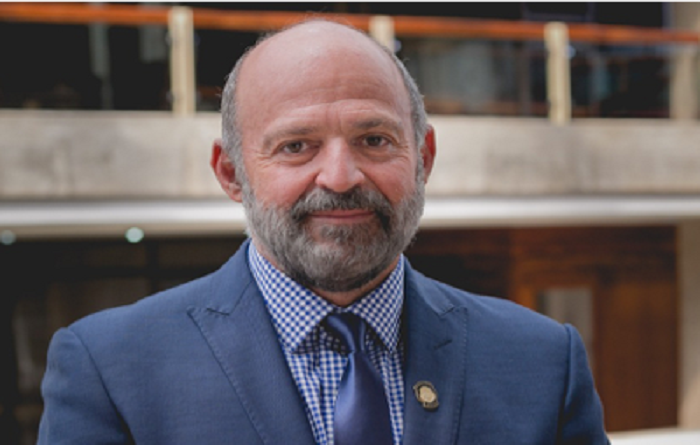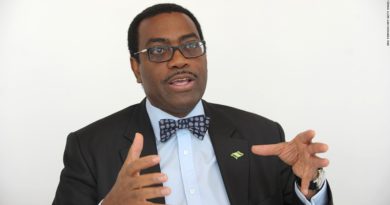GEF Assembly to propel bold collaboration for nature
The Global Environment Facility’s every-four-year gathering of 185 countries will take place in Vancouver at a time when the world is struggling to cope with record air and sea temperatures, deadly and destructive wildfires, and extreme flooding. At the top of the agenda? Setting a path to end nature loss and turn down the heat.
Attendees at international environmental meetings have grown accustomed to hearing warnings about the future – about risks to people and ecosystems if radical change does not occur.
The Seventh Assembly of the Global Environment Facility, which takes place in Vancouver Aug. 22-26, will stand out for its focus on the dangers of the present.
Environment leaders from 185 countries are gathering at a time of record-high land and ocean temperatures, out-of-control wildfires, and deadly flooding even in areas unaccustomed to weather extremes: a succession of disasters that UN Secretary-General Antonio Guterres described as heralding the arrival of “an era of global boiling.”
“Nature loss and climate change are not worries for the future. They are realities today that will be front-of-mind for every single person as we gather in Canada, where this summer’s wildfires have burned forests covering an area twice the size of my country,” said GEF CEO and Chairperson Carlos Manuel Rodriguez, Costa Rica’s former environment and energy minister.
“This Seventh GEF Assembly will have a clear theme: the need to work together in new ways, within and across countries and across sectors, to heal the planet. This will mean standing shoulder-to-shoulder as one family – connecting governments, Indigenous Peoples, businesses, local communities, and the young leaders who are clear-sighted about the present and believe in a better future,” he said.
The Assembly will chart a path forward through three dimensions: elevating the contributions of science to a healthier and more biodiverse planet; generating more funding from all sources to address biodiversity loss, climate change, and pollution; and ensuring that environmental governance becomes more inclusive and focused on those who have been historically under-represented in this space, including youth, women, and Indigenous Peoples.
A highlight of the Assembly agenda will be the launch of the new Global Biodiversity Framework Fund (GBFF), which will provide a boost to developing countries’ investments in nature and support Indigenous Peoples and local communities in their pursuit of the ambitious goals agreed to at the Convention on Biological Diversity COP15 in December 2022.
The new fund, which the GEF Council agreed to establish just six months after world leaders reached the landmark agreement on nature preservation in Montreal, will be set up to accept donations from governments as well as from philanthropy and the private sector. Dedicated support will be provided to Indigenous Peoples for their critical role in conserving biodiversity.
It will be hosted at the GEF, which is also set to become part of the financial mechanism for the new United Nations pact on biological diversity of areas beyond national jurisdiction (BBNJ) – also known as the High Seas Treaty.
The GEF will work to assist countries as they implement this historic agreement, adopted in New York in June, to preserve biodiversity in marine areas that lie outside national control.
Funding responsibility for the Global Biodiversity Framework and the BBNJ will broaden the GEF’s remit beyond supporting international action on climate change, land degradation, toxic chemicals, and mercury.
Created three decades ago with a narrower focus, the GEF is the world’s largest multilateral funder of environmental action, and a trusted partner of both donor governments looking to make a global difference, and developing countries looking to tackle their biggest ecological and sustainability challenges.
In a demonstration of the GEF’s growing focus on civil society, the Assembly in Vancouver will include a full-day Partnership Forum with programming and discussion focused on groups that have not always had a voice at intergovernmental gatherings. This session will include and celebrate the perspectives of youth, women, local communities, and Indigenous Peoples, with dedicated networking spaces and opportunities to engage with one another and with government representatives.
“What I hope is we will listen. It’s very important to listen before speaking. And you have to listen to those who are almost never listened to,” said Arturo Arreola Muñoz of the GEF Civil Society Organizations Network, from Mexico.
“Inclusion is very important because it shows us diversity. Nature is diverse, societies are diverse, so we cannot detach ourselves from our characteristics. Just as nature, we have to see ourselves from this perspective of diversity.”
The program also features sessions dedicated to science and an emphasis on the current and potential role of the private sector in building a safer, healthier planet in partnership with national and sub-national governments.
Recent months have seen significant advances in environmental diplomacy, among them the COP15 breakthrough on biodiversity, the UN pact to preserve the high seas, a pledge from world leaders to work toward a global deal on eliminating plastic waste, and a World Trade Organization agreement to bar harmful fisheries subsidies.
At its Brasilia meeting in June, the GEF Council also agreed on a record $1.4 billion work program, which will advance efforts to address environmental challenges in an integrated way.
The Vancouver meeting will be an important next step as countries find new and bold ways to work together to address environmental pressures that are making themselves increasingly evident all around the world.
“While we are gathering at a moment that may seem apocalyptic or hopeless, that is far from the spirit of the Seventh GEF Assembly,” Rodriguez said.
“We will be meeting in Canada with a unity of purpose at a difficult time, in the knowledge that by working together we can face the challenges before us and turn this around. Everyone must be involved, and this is the path we are forging together.”




